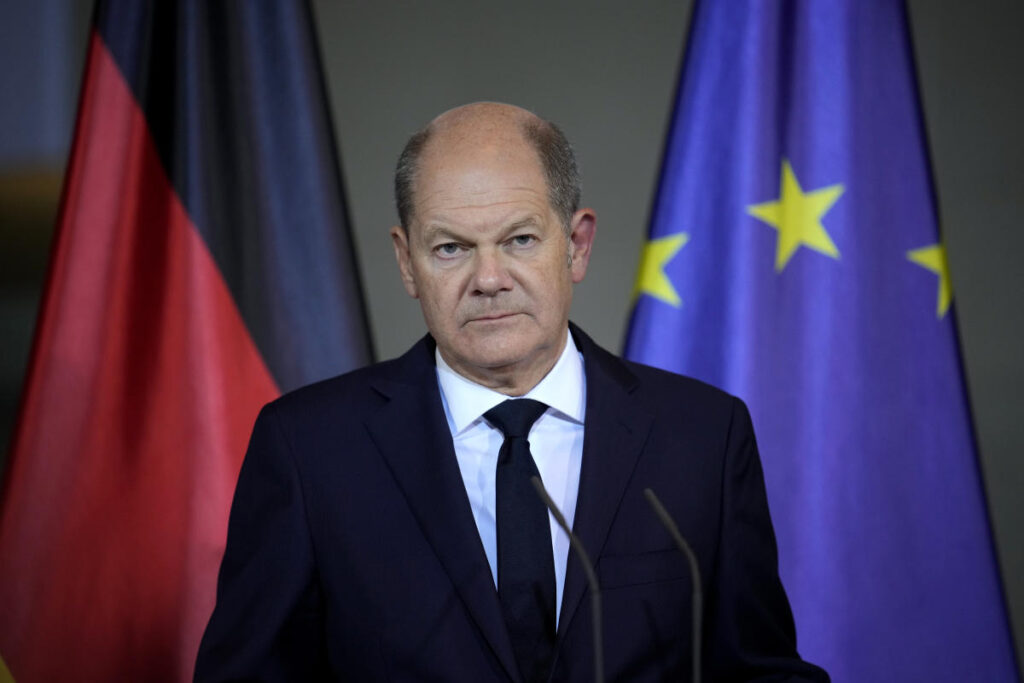The governing coalition in Germany, composed of the center-left Social Democrats, the pro-business Free Democrats, and the environmentalist Greens, is facing significant challenges as leaders meet to address the country’s struggling economy. Chancellor Olaf Scholz, alongside Finance Minister Christian Lindner and Economy Minister Robert Habeck, are striving to devise a cohesive strategy to stimulate economic growth. However, their differing viewpoints and priorities have created an atmosphere of conflict, leading to uncertainty about the coalition’s stability leading up to the next election in 2024. A crucial budgetary meeting aims to tackle the projected deficit in the 2025 budget while laying a foundation for potential economic revitalization.
Tensions within the coalition have escalated over the past weeks due to uncoordinated meetings and conflicting proposals. Scholz has appealed to his partners, urging them to prioritize the nation’s needs over individual party ideologies. He emphasized the importance of collaboration and commitment to Germany’s wellbeing, reflecting concerns that the coalition might falter if consensus isn’t reached. The frustration among the populace regarding the government’s internal strife is palpable, with many questioning whether the coalition can endure the upcoming months and adequately address the pressing economic issues facing the country.
The Free Democrats, led by Lindner, advocate for a pragmatic approach to economic reform, as highlighted in a controversial 18-page document outlining their proposals. Their plan firmly rejects proposals for tax hikes or modifications to Germany’s stringent debt regulations and suggests cuts to welfare programs for the unemployed as a means to achieve fiscal efficiency. This stance has generated significant pushback from the left-leaning politicians within the coalition, who favor substantial state investment rather than austerity measures, thereby exacerbating the ideological divide between the party factions.
Germany’s economy is currently under considerable strain, with predictions indicating a potential shrinkage in 2024 for the second consecutive year. This downturn is attributed to a mix of external challenges, such as global economic conditions, as well as domestic issues, including bureaucratic red tape and a persistent shortage of skilled labor. Many citizens are increasingly concerned about the government’s ability to implement effective solutions to reverse the economic slump, leading to skepticism about the coalition’s long-term viability and its aptitude for steering the nation toward recovery.
Historical context plays a significant role in the current situation, as the coalition partners have faced mounting pressures in reconciling their ideological differences while confronting tangible economic realities. The ongoing disputes over budgetary policies and economic strategies reflect a broader trend within European governance, where coalitions frequently grapple with divergent interests. In this case, the pressure to maintain unity is further exacerbated by the looming threat of an economic downturn and the potential consequences that could follow if the coalition fails to act decisively.
As the coalition leaders prepare for their critical meeting, the stakes are undeniably high. The future of the government hangs in the balance, driven by the necessity of establishing a coherent economic strategy that satisfies the diverse needs of the coalition parties. Public sentiment is sharply focused on whether the leaders can transcend their ideological divides to bring about the needed economic reforms that would restore faith in their governance. Moving forward, the ability of these leaders to navigate their differences and construct a unified approach will determine not only the fate of their coalition but also the economic stability of Germany in the years to come.

